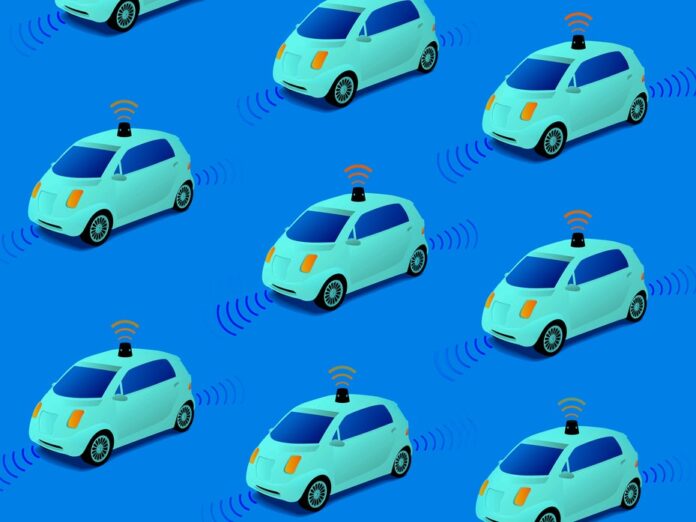Author: Frits Klaver
Date: 7 January 2021
Publisher: Mobility 2030
Link: https://www.compact.nl/en/articles/the-economic-and-social-impacts-of-fully-autonomous-vehicles/
While many people see autonomous vehicles as the solution to reduce congestion, traffic accidents and greenhouse gas emissions, others believe this technology will result in a loss of jobs in many sectors. Taking a holistic view on this technology, by taking both positive and negative impacts into account and converting them into societal costs and benefits, can result in new insights. This article provides a snapshot of these potential societal costs which can be used by governments, car manufacturers and other stakeholders as a starting point for discussing how to ensure this technology will optimally benefit all of us.
Autonomous vehicles (AVs) have the potential to significantly impact society by providing driverless mobility to a broad range of people, from door to door. Not only those who are currently able to drive a vehicle, but also those who don’t due to physical, psychological or other conditions will be affected by this new technology. Furthermore, AVs can improve access to mobility to lower- and middle-income classes, as the costs of transportation will be reduced: some experts estimate that this form of transportation will become almost 50% cheaper compared to current costs, meaning that this form of transportation might be cheaper than public transport.
This new technology can bring many benefits to society, as experts estimate that AVs can drastically reduce travel time due to reduced traffic jams. On top of this, people within the AV who do not drive can be productive during their journey, while being in a much safer vehicle.
However, as with all technologies, there are plenty of downsides. While millions of jobs might be transformed, many will also be lost as demand for human drivers in the transportation sector may disappear. While some jobs such as taxi drivers might disappear completely in the long run, other jobs such as those of police officers might change as they will not be needed anymore for giving speeding and parking tickets.
Autonomous vehicles also have secondary effects. As AVs are expected to be safer than vehicles with human drivers, the chance of getting an accident will be reduced. This reduction in car accidents will impact transport-related sectors such as insurance industries and car repair centers, again impacting millions of jobs. For instance, Tesla is already offering insurance services to its customers as it expects it can offer this at a much cheaper rate than current insurance providers due to the constantly improving over-the-air updates, which make its vehicles safer due to autonomous functions. Furthermore, public transport might become redundant, as AVs will become cheaper than public transport, safer in terms of less accidents, and also could be more comfortable in terms of privacy and hygiene. In fact, during a global pandemic where public transport is hardly used anymore, autonomous vehicles might even be a solution to sustain economic activity while reducing the chance to spread a virus.
Along with the broader movement of the sharing economy, AVs have the potential to be a catalyst of seeing mobility not only as a product (owning a vehicle) but as a service or a combination of these two. The threshold for owners of AVs to rent their vehicle to others will be lowered significantly, as people know who is driving it. As a result, everyone who owns an AV can start their own taxi service or car rental organization: AirBnB for vehicles.
As vehicle production companies are developing this technology, and the public is slowly embracing the concept of autonomous driving, it is important for many stakeholders – including policymakers and mobility-related industries – to understand how AVs might impact society and their business. This article explores how autonomous vehicles have the potential to create and destroy value for society, the economy and the environment both in the United States and in the Netherlands.
This article, as stated in the title, addresses social and economic impacts brought on by autonomous vehicles. It truly helps the designers see long term problems that might be brought on by autonomous vehicles, such as the loss of driver type jobs as new technologies move in. It can be difficult to make these connections, and I feel that this article does a really good job of summarizing points that may have been more difficult to understand without a very broad context. Overall, it will be an aid in the design process because it is yet another article that prioritizes naming stakeholders and the issues that they could wind up dealing with as this transition to vehicle autonomy begins.
Klaver, F. (2021, January 7). The economic and social impacts of fully autonomous vehicles. Compact. Retrieved September 25, 2021, from https://www.compact.nl/en/articles/the-economic-and-social-impacts-of-fully-autonomous-vehicles/.




